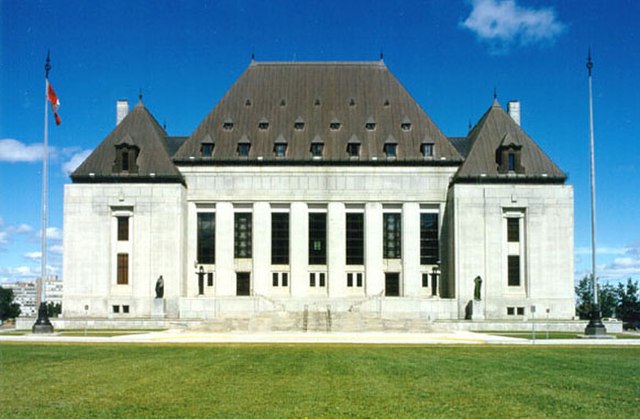The Canadian Supreme Court Thursday ruled to reinstate a conviction for impaired driving, despite the fact that the sobriety stop that produced crucial evidence was deemed illegal. Ultimately, the court determined that “Admission of the evidence would better serve the truth‑seeking function of the criminal trial process and would not damage the long‑term repute of the justice system.”The court accepted that police do not have statutory authority under s.48(1) of Ontario’s Highway Traffic Act (HTA) to conduct random sobriety stops on private property. Further, they noted that s.48(1) authority “cannot be used by police to carry out a random sobriety stop on private property on the basis that the driver was on the highway at the time the police officer formed the subjective intention to stop them.” However, in considering all of the circumstances, the court found that the evidence in the case at issue should not have been excluded. At the time of the stop, there was legal uncertainty as to whether it was a valid stop, and the ultimate breach was, “not so serious.” Further, the stop interfered with the suspect’s charter-protected interests, but this intrusion was only a “marked” one. On the other hand, the evidence collected at the stop was reliable and crucial to the Crown’s case.On March 26, 2016, police spotted the Walker McColman’s vehicle parked outside a convenience store while on general patrol. They decided to follow the vehicle out of the parking lot, and onto a highway. At this point, the police had developed an intention to conduct a random sobriety stop pursuant to the HTA. However, in the time it took police to catch up to McColman, he had already pulled off the highway and onto the private driveway of his parents’ home.Nevertheless, the police stopped McColman and arrested him after noticing signs of intoxication. He was charged with impaired driving and with operating a motor vehicle with an excess of 80 milligrams of alcohol in 100 millilitres of blood, contrary to the Criminal Code.At trial, the judge determined that the stop was lawful, found the suspect guilty of both charges and stayed the impaired driving conviction. McColman appealed, arguing that neither s.48(1) nor s.216(1) of the HTA permitted police to conduct random sobriety stops on private property absent reasonable and probable grounds. Further, he argued that the police had infringed on his s.9 Charter right, which states, “Everyone has the right not to be arbitrarily detained or imprisoned.”




The Most Read
Сryptocurrencies
Bitcoin and Altcoins Trading Near Make-or-Break Levels
Financial crimes
Thieves targeted crypto execs and threatened their families in wide-ranging scheme
Financial crimes
Visa Warning: Hackers Ramp Up Card Stealing Attacks At Gas Stations
News
Capitalism is having an identity crisis – but it is still the best system
Uncategorized
The 73-year-old Vietnamese refugee is responsible for bringing Sriracha to American consumers
Uncategorized
Electric Truckmaker Rivian, Backed By Amazon, Ford, Raises Whopping $1.3 Billion